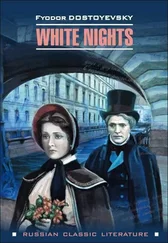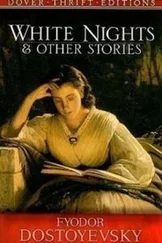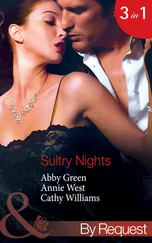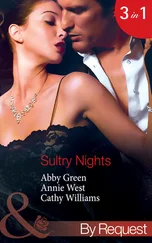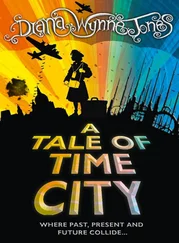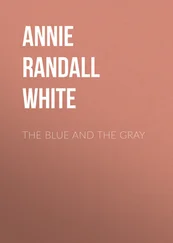Annie DeWitt - White Nights in Split Town City
Здесь есть возможность читать онлайн «Annie DeWitt - White Nights in Split Town City» весь текст электронной книги совершенно бесплатно (целиком полную версию без сокращений). В некоторых случаях можно слушать аудио, скачать через торрент в формате fb2 и присутствует краткое содержание. Год выпуска: 2016, Издательство: Tyrant Books, Жанр: Современная проза, на английском языке. Описание произведения, (предисловие) а так же отзывы посетителей доступны на портале библиотеки ЛибКат.
- Название:White Nights in Split Town City
- Автор:
- Издательство:Tyrant Books
- Жанр:
- Год:2016
- ISBN:нет данных
- Рейтинг книги:5 / 5. Голосов: 1
-
Избранное:Добавить в избранное
- Отзывы:
-
Ваша оценка:
- 100
- 1
- 2
- 3
- 4
- 5
White Nights in Split Town City: краткое содержание, описание и аннотация
Предлагаем к чтению аннотацию, описание, краткое содержание или предисловие (зависит от того, что написал сам автор книги «White Nights in Split Town City»). Если вы не нашли необходимую информацию о книге — напишите в комментариях, мы постараемся отыскать её.
Annie DeWitt
Granta
Believer, Tin House, Guernica, Esquire, NOON
BOMB, Electric Literature
American Reader
Short: An International Anthology
Gigantic
Believer
White Nights in Split Town City — читать онлайн бесплатно полную книгу (весь текст) целиком
Ниже представлен текст книги, разбитый по страницам. Система сохранения места последней прочитанной страницы, позволяет с удобством читать онлайн бесплатно книгу «White Nights in Split Town City», без необходимости каждый раз заново искать на чём Вы остановились. Поставьте закладку, и сможете в любой момент перейти на страницу, на которой закончили чтение.
Интервал:
Закладка:
“I drove up from town,” the Ranger said, removing his hat so you could see the contours of his face where the sun hit them. “I’m here to inquire about your stream. We’ve had complaints about the pests in these parts.”
Two large, clear gullys of sweat ran down the side of his face. His hair was wet where the hat had been. A uniform often makes a man look older than he is, I thought. To a man of his age, pest was a specimen of experience no larger than biology.
Father must have heard the whine of the screen door. He emerged from the bulkhead where he’d been sorting packets of seeds. A long-winded pride swelled from Father’s chest as he watched the Ranger interacting with Mother. Mother had a way of casting men outside of themselves. It was in such moments that Father was most dumbfounded by his own good luck.
“I can see you located my trouble here, Ranger,” Father called to us, curling the thick, green hose around the underbelly of his arm.
“No trouble,” The Ranger said. “I just came to inquire about having a look around your stream.”
“Is there some issue with my stream?” Father said.
“Well, that depends, I suppose,” the Ranger said stepping off the porch and heading toward the bulkhead where Father was wrapping his hose. “On what you call trouble. There’s been talk of dredging your stream to rid the town of the squeeters and the gnats. A doctor recently built a home on the east side of the mountain. A city man. High-up on his profession. With all the horse farms in these parts, there’s been rumor of equine encephalitis. The doctor’s wife is pregnant.”
The road was thick with bugs that summer. Inside the house, Mother had taken to hanging flytraps in the doorways. The thin, sticky yellow papers hung from the doorframes like rows of gristle. When the breeze came through the windows at night, it shook the papers, unsticking the carcasses that were less deeply embedded and unleashing them onto the ground. In the morning, the linoleum under the doorframe which led to the kitchen was littered with small wings and dried up bodies which Mother swept into the dustpan and threw out over the deck. She said the protein was good for her garden. Every now and again she missed a spot and you felt the crunch of a dried fly underfoot.
Above all things, Father prided himself on reason and what levelheadedness he could offer others less informed about the world than himself. Since moving to Fay Mountain, Birdie and I had been bitten by horseflies big enough to stop a cockroach in it’s tracks. Father knew that doctor’s baby was at no immediate risk. If he had been a betting man, he’d have put money on it. Talk, Father often said, had a reliable pattern. Most of the gossip which made its way to Fay Mountain Road had nearly extinguished itself in town before it reached us. Father took the Ranger out back of the house to the marshland where the stream emptied out just to appease him. Dressed in my bathing suit and Mother’s gardening boots, I accompanied the two men to determine what opportunity might lie dormant in the air.
The heat that day was dry and unsettling. The sun was strong and blocked out all sense of movement. Even the mosquitoes in the swamp seemed to have settled down under the leaves of the trees to find a moist spot in the shade and avoid choking on the dust. The stream coughed out a trickle. The marsh itself looked like a bald piece of earth, dry and cracked in some patches, wet enough in others that the land moved like jelly underfoot. We made our way — the Ranger, Father and I — down to the tributary where the stream emptied out into a small basin. At the mouth of the basin, a beaver had built a den out of twigs and torn bits of burlap, remnants of old feedbags that had been carried downstream from the pastures in the runoff. A green plastic soda bottle had caught on the south face of the den and bobbed listlessly in the water. As we crossed the dam, Father picked up the bottle and stuffed it in his pocket while I made my way toward the left bank of the stream to get a better view of the marsh. There, we surveyed the land for clouds of bugs. “You know those well-to- do folk,” the Ranger said by way of apology. “Always looking for someplace to cast around their improvement. They’d mow their neighbor’s lawn if it would make their own look greener.”
The left bank of the river sat slightly higher than the marshland below it. Amid the floating lily pods and clusters of cato’- nine-tails, it resembled an island around which the earth dropped off. An old white birch stood alone in the center of the island. The tree no longer bore leaves. Instead, it boasted a full head of barren branches whose thin, paper-like bark resembled the skin of a cabbage, nearly transparent in the morning sun.
“Finders keepers,” Father said as he made his way up the bank. Beneath the tree, he hoisted me up by the waist and set me on one of the lower branches.
“Hold on to this,” Father said, handing me the bottle out of his pocket. “If you want to claim a place for your own, you’ve got to learn to tend your land. The Ranger and I are just going to take a quick swing around back of the marsh to see if we can rustle ourselves up some of those baby killers,” he laughed. “Won’t go far enough to let you out of eyesight. You keep a look out, yah hear?”
The two men turned and started for the far end of the marsh.
“Now that’s what I call a little piece of gold,” I heard the Ranger say before they disappeared from earshot. The Ranger tipped his hat in my direction as the two men picked their way across the swamp.
When they had vanished into specks on the other side of the marsh, I slid out of the tree and made my way to the left bank of the river. Seated there, I put the empty bottle to my lips and blew over top of it. Sometimes at night when Father was at the piano, Mother sang a song about going to San Francisco. They called this song their old standard. I tried to remember the tune but nothing came except the sound of air rushing over the hollow glass like the whistle of a train as it grew near.
4
With the scare on, people kept their horses in the barn most days despite the weather. Otto Houser said this was rubbish. In ten years, he claimed, the whole country had only seen the loss of a few good animals. Fewer bodies, he said, than he could count on one hand. Sleeping sickness, as it was known by the farmers, was a disease that affected the greenhorns, those people who lived backwater and liked to keep a filly or two cooped up in a barbwire paddock so small the horses stood in their own manure and ate whatever shrubs made their way up through the filth onto dry land.
But when word reached the feed store that a Palomino had fallen sick two counties over, even Otto Houser took to keeping his horses in the barn from before dusk to well after sunup, those hours when the mosquitoes were at their peak. Otto claimed he did it to protect the boarders he stabled at the barn. His own, he said, could fare. After a while, even the old all-weather Shetland Otto kept out of doors and rotated around the various paddocks to graze down the weeds and eat back the scrub brush had disappeared from the field and into the barn. Most mornings, we woke to the sound of horses kicking the insides of their stalls.
When Birdie and I pedaled our bikes over the bridge to the farm stand, we saw Cash at work in the fields, the thin outline of his body hunched over in the cab of the bright orange baler as it worked its way across the earth, dividing the grassy spoils into neat rows of hay that cut across the west side of the mountain.
Fender manned the register at the farm stand while Ada sat in the shade of the overhang in front of the old garage within shouting distance of the customers. Just short of four feet and built like a lumberjack, Ada had a shock of red hair that ran down her back in a long braid. She spoke to her customers like they were inviting in the type of trouble she’d worked all her life to keep out. Women liked her because she could be trusted around their husbands. Men liked her because she could jumpstart a car on a hill without cables in a pinch. The meaner Ada was to you, the higher you ranked in her opinion.
Читать дальшеИнтервал:
Закладка:
Похожие книги на «White Nights in Split Town City»
Представляем Вашему вниманию похожие книги на «White Nights in Split Town City» списком для выбора. Мы отобрали схожую по названию и смыслу литературу в надежде предоставить читателям больше вариантов отыскать новые, интересные, ещё непрочитанные произведения.
Обсуждение, отзывы о книге «White Nights in Split Town City» и просто собственные мнения читателей. Оставьте ваши комментарии, напишите, что Вы думаете о произведении, его смысле или главных героях. Укажите что конкретно понравилось, а что нет, и почему Вы так считаете.

![Элизабет Ленхард - Свидание со смертью[Date With Death]](/books/79651/elizabet-lenhard-svidanie-so-smertyu-date-with-dea-thumb.webp)



